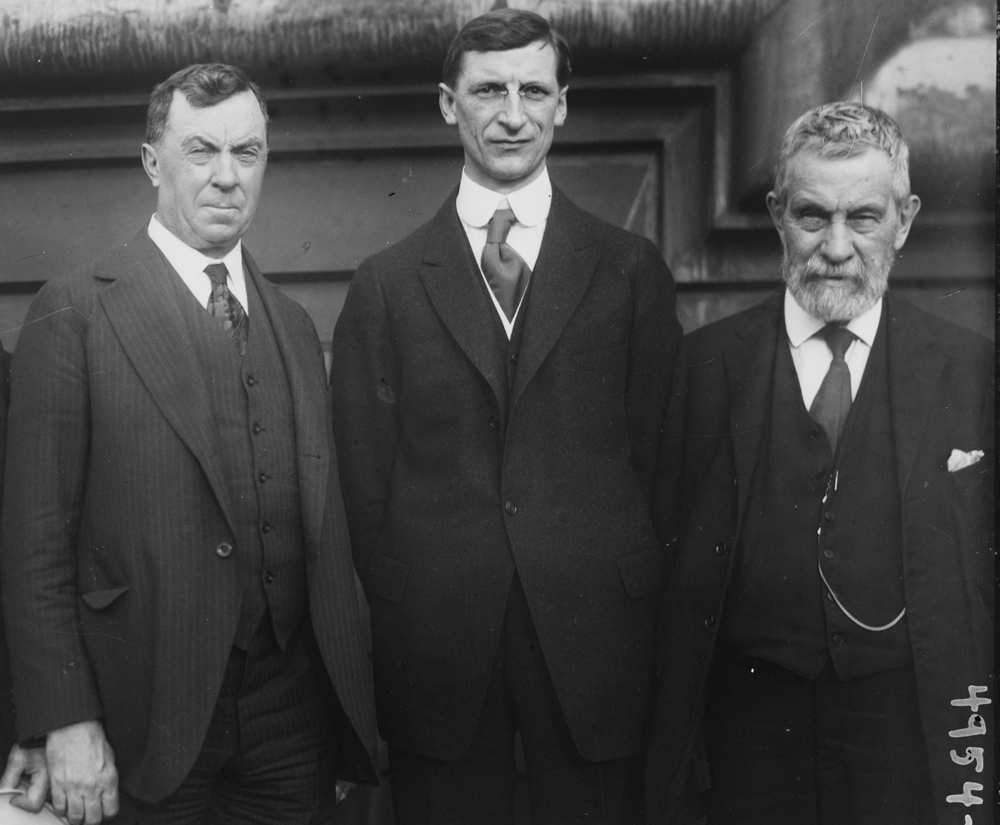De Valera denies misuse of funds and says Irish-America remains united
New York, 6 July 1920 - The President of Sinn Féin, Éamon de Valera has responded to criticisms directed at him in a leading Irish-American newspaper, the Gaelic American, and he has denied that a rift has opened up between Sinn Féin and influential Irish-Americans.
In a lengthy statement, Mr de Valera dismissed a charge that he had been guilty of misuse of funds as ‘malicious and without foundation’. He said that the money that had been subscribed for Irish Issue Bonds was the property of the Irish nation and he was entitled to use it for all legitimate governmental purposes. And, he stressed, there was no purpose so urgent as the securing of recognition.
Mr de Valera withdrew from these funds to take a group of ‘influential friends of our cause’ to attend the Republican convention in Chicago and he only did so when it became clear that this necessary task was not going to be undertaken by the committee of the Friends of Irish Freedom (FoIF), who had been expected to do so.
Mr de Valera says that he felt aggrieved at having to use Dáil Éireann funds when there were funds available, subscribed by sympathisers to the Irish cause, for such purposes. ‘I had always believed that the greatest effort that our friends would make in America would be made at these conventions. It was at these conventions that the steps by which our nation could obtain redress could be initiated.’
Mr de Valera states that he was always conscious of the risks associated with his US fundraising drive, that the ‘power of the purse’ would leave him ‘subservient to the wishes of others than the Irish people.’ For that reason, he had written to his own government and secured, together with a co-trustee, discretionary powers to use the funds within specified limits, so that he might be free to ‘work untrammelled in Ireland’s interest.’
He added that throughout his time in America he has met with people all across the country and has not had the ‘slightest difficulty in working in greatest harmony and closest cooperation with all, except one or two individuals.’
Judge Daniel Cohalan, a senior figure in the FoIF has also tried to dampen talk of dissension, telling the New York Journal that there is ‘no division in the ranks on any question of principle’.
Cohalan said that he was engaged with Irish issues as an ‘American, whose first and only loyalty is to my own country, and... I shall continue to work as I have done in the past with all who strive to bring absolute independence to Ireland.’
Despite these claims of unity, two different delegations – one endorsed by the FoIF and one endorsed by de Valera – were sent to the Republican Convention, arguing for different promises from the party in the coming presidential campaign.
With the controversy still ongoing, it is believed that the Irish-born Archbishop of Melbourne, Daniel Mannix, who is currently in New York, might be engaged to act as a peacemaker between the two sides.
[Editor's note: This is an article from Century Ireland, a fortnightly online newspaper, written from the perspective of a journalist 100 years ago, based on news reports of the time.]





















